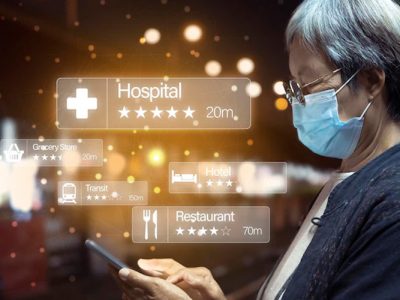
Covid arises a question can VR and holograms address patients dying alone in the future of healthcare
Covid-19 has been an eye-opening incident for nearly all of us. It has made us understand the power of community, the significance of virtual reality innovation, and the weakness of our daily lives. We have witnessed how numerous people die unaccompanied during the pandemic without family or loved ones by their side due to hospital regulations. Can VR and holograms decrease the emotional burden on patients, families, and doctors in upcoming crises when patients can’t be with their loved ones? Covid has caused a severe decrease in healthcare resources, counting medical staff, ethicists, and other critical resources to handle the demand and psychological stress of helping those in need of treatment by virtual reality. And this is not only for patients who are suffering from Covid but also for those admitted to the hospital for other health conditions. The regular crisis caused the profound tiredness of our frontline workers. They experienced noteworthy levels of nervousness, depression, and sheer psychological distress as they went to huge lengths to directly care for Covid patients while disturbing their health and spreading the virus to other family members.
The loss of ventilators and PPE multiplied their stress stages and created an experience of helplessness that caused higher rates of medical doctors to quit or maybe commit suicide. They felt extra anxiety approximately taking on new medical roles and increasing their work to aid their colleagues and, importantly, they had much less support and access to mental healthcare offerings to control their anxiety, depression, and psychological distress.
ICU medical doctors confronted an especially tough time. Dr. Lakshman Swamy, a pulmonary and essential care physician at Cambridge Health Alliance and an instructor of medicine at Harvard Medical School, wrote an editorial in the Washington Post discussing how ICU medical doctors struggled to bridge emotional gaps and digital and went above and beyond to deliver sympathy and keep patients alive during covid.
One of the maximum troubling and heartbreaking troubles during the Covid changed into seeing humans die alone with no family around them in healthcare departments. The worry of being isolated in a hospital additionally had a terrible effect on humans deciding to delay healthcare. This scenario only exacerbated the severity of his health conditions.
Hospitals, emergency departments, and long-time period healthcare centers had been forced to set up protocols for visitors to comprise the spread. While logical and justifiable, the value of the coverage to doctors, patients, and families was profound.
But what if it doesn’t must be this way? Can public healthcare regulations and the health system consider new technology that permits humanity, and empathy to stay all through a future health emergency? Can virtual reality convey a modicum of peace to suffering patients? Can the holographic era convey family members proper into the patient room to convey joy? Such technology is in no way a substitute for people or in-character contact, however, it may be able to significantly alleviate isolation through excessive psychological distress.
The role of virtual reality in palliative care is being studied. Chronic ache patients had been visible to take fewer painkillers whilst gambling on virtual truth games. What if dying Covid patients may want to have visited their favorite locations using VR and holograms?
Also, consider if hologram technology can be harnessed as NASA did by teleporting a medical doctor to the International Space Station. Using VR and holograms to convey patients’ cherished ones into their rooms is probable to have a wonderful effect on their mood, thereby reducing psychological distress for our medical doctors like Dr. Swamy. I strongly agree that if we used such an era, it may have introduced a sense of empathy, comfort, and humanity to our healthcare ecosystem.



















